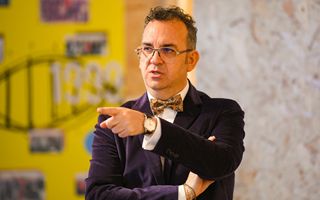(Finance) – Keeping talents from Southern Italy and attracting students from all over the world. This is the goal that sees the Sicilian city of Modica engaged, which aims to train many young people from the South, but also foreigners, from the United States to Japan, through the philosophy of “Slow Study”. It is a project inaugurated by Icotea, a university training institute accredited by MIUR, which aims to become the reference point for students from the entire Mediterranean basin and beyond, as demonstrated by the “Marco Polo- Turandot” started with Chinese universities.
“Many young Sicilians deserve adequate training without having to leave their homes. We want to offer the area highly trained young professionals and internationalize Sicily’s image by bringing many foreign students to Modica”, he says Tommaso Barone, founder of Icotea.
Icotea has inaugurated an innovative 7000 m2 university hub in the green heart of Modica (RG), a Unesco heritage city and cradle of the Baroque.
The fourth site, after Milan, Rome and Sassari, is an innovative 7,000 m2 campus that offers degrees, masters, specialization courses and language certifications, proposing itself as a point of reference for education throughout the Mediterranean basin. A one-of-a-kind multifunctional structure, which aims to represent a point of complete growth, adding sporting and cultural activities to academic training: the 22 classrooms and 5 laboratories are joined by 2 gyms, one indoors and one outdoors, 2 theaters and different exhibition areas. The campus has the most modern multimedia and information technologies, harmoniously integrated in a natural park of about 15,000 square meters which has not been modified to make room for the structure. An integration between technology and nature that responds to the environmental sustainability mission of keeping CO2 emissions low.
Why is the talent drain an expanding phenomenon?
The factors that contribute to the flight of talents are different and affect multiple members of society. First of all – explains Tommaso Barone to the Finance press agency – is the lack of opportunities in the country of origin, plus political instability, unfavorable economic conditions and high income taxes. Also contributing to the young brain drain is the globalization, as people are more ready to look for work in other countries and large companies are interested in talent regardless of where they come from. However, the mobility of young people does not only begin when they look for a job, but in the previous phase, that of training. Many students choose the universities of Northern and Central Italy, for this reason it is necessary to improve the level of the educational offer in Southern Italy. 
Icotea is committed to reversing the trend of this phenomenon. What do you expect from the new training centre?
With the inauguration of the new 7000m2 training center in Modica “we set ourselves the ambitious goal of becoming the reference point for training not only in south-eastern Italy but in the entire Mediterranean basin, retaining local talent and attracting international ones,” says the founder of Icotea. We offer a dynamic learning environment, which will allow students to acquire new knowledge through bachelor’s, master’s, specialization courses and language certifications. All students will also benefit from specialized support to monitor skills improvement and find job opportunities.
What to do to attract new talent from all over the world and relaunch and internationalize Southern Italy?
To attract new talent and relaunch and internationalize Sicily is systemic action is needed in order to develop a study and work environment that is attractive to foreign citizens. In the Icotea Hub – explains Barone – we not only aim to increase the quality of academic training but offer an opportunity for complete growth with sporting and cultural activities. All inserted in a context rich in art, history and culture under the banner of “Slow Study”, a healthier and less frenetic approach to life than the big cities. The first to try this type of study will be students from Chinese universities thanks to the “Marco Polo-Turandot” exchange project. In addition to training, however, action must also be taken to build an adequate environment made up of infrastructures and good career opportunities, encouraging creativity and innovation. We need – concludes Barone – one overview of the internationalization strategy which also includes promoting Southern Italy as a desirable destinationemphasizing the advantages it offers in terms of quality of life.
